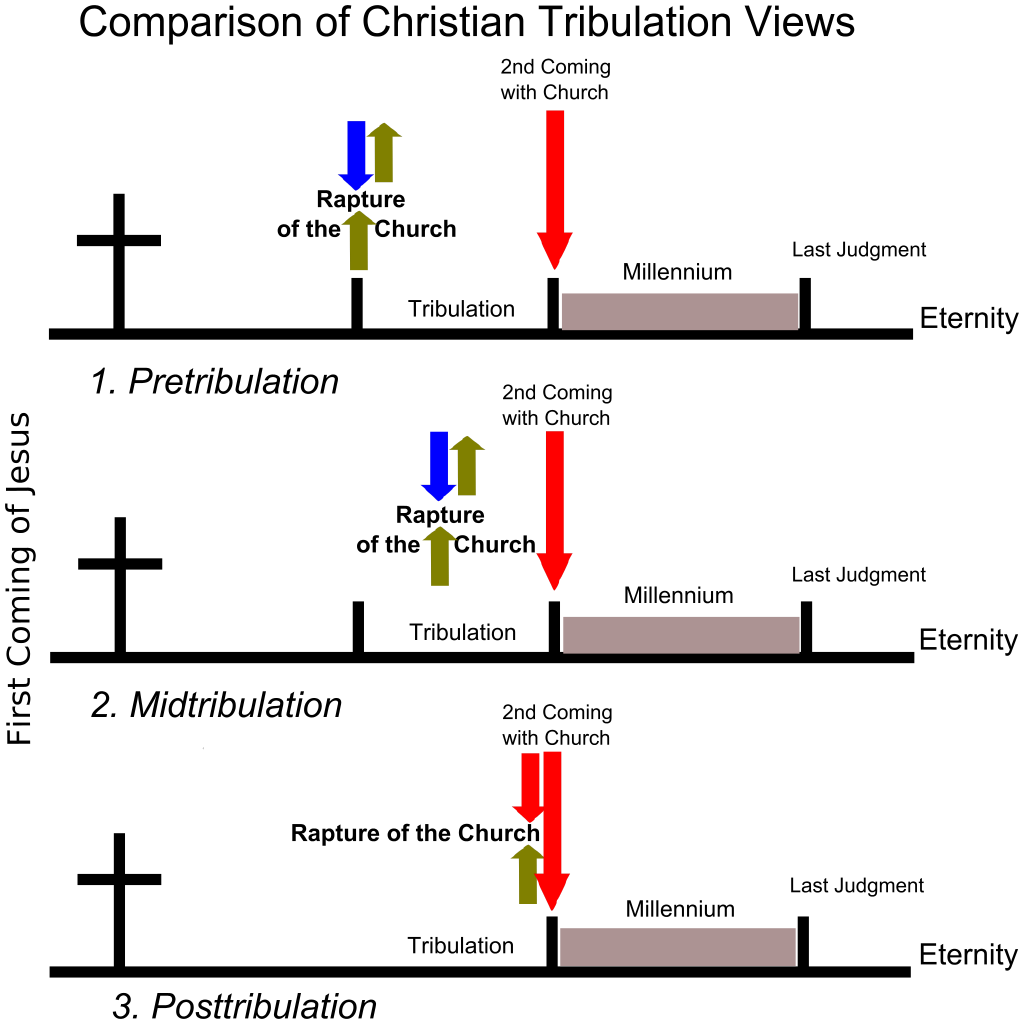In 2 Thessalonians, Paul said the church will experience apostasy.
Apostasy. What did Paul mean when he told the church to expect an apostasy before the return of Christ? For many scholars, the meaning is clear. They see it as a departure or a denial of faith in Christ. But in recent years there is an increasing number of believers/teachers who think this was Paul’s clever way of referring to the rapture. A simple search of easily available resources will help you see the generally accepted definition of the word.
I should clarify. This definition is generally accepted by most biblical scholars. Even most pre-tribulation scholars see the clear meaning of the Greek word. The word is found twice in the New Testament and it means defection, revolt, falling away, or departure. But what are the people going to fall away from?
Did Paul mean a departure/falling away from the faith or a departure from the earth? As I just mentioned, many pre-tribulation believers are suggesting Paul said that the rapture would occur before the appearance of the “man of sin.”
As we explore the two views let’s first look at the two verses that have the Greek word which Paul used.
https://thewritelife.tech/2018/08/12/olivet-discourse-after-the-tribulation-the-son-of-man-shall-appear/
Comparing verses.
2 Thessalonians 2:3
Let no one in any way deceive you, for it will not come unless the apostasy comes first, and the man of lawlessness is revealed, the son of destruction.
Acts 21:21
And they have been told about you, that you are teaching all the Jews who are among the Gentiles to forsake G646 Moses, telling them not to circumcise their children nor to walk according to the customs.
An original Greek word is often translated differently depending on the context. In the first verse, the translators settled on “apostasy” and in the second, they used the word “forsake.” But in both instances, the meaning is exactly the same. In Acts, we see that the Jews were concerned about Jewish believers forsaking the practice of following the Mosaic customs and ceremonies. Paul used the same word in Thessalonians. And as you might expect, it means the same thing. He warned about “confessing” Christians denying their faith in Christ. He wasn’t warning about a secret rapture event.
A definition from ‘Vines Greek Expository.’
Forsake:
“an apostasy, defection, revolt,” always in NT of religious defection, is translated “to forsake” in Act 21:21, lit., “(thou teachest) apostasy (from Moses);” in 2Th 2:3, “falling away.”
See FALL.
The definition as found in the Strong’s Concordance.
STRONGS NT 646: ἀποστασίαἀποστασία, -ας, ἡ, (ἀφίσταμαι), a falling away, defection, apostasy; in the Bible namely, from the true religion: Acts 21:21; 2 Thessalonians 2:3; ([Joshua 22:22; 2 Chronicles 29:19; 2 Chronicles 33:19]; Jeremiah 2:19; Jeremiah 36:32 (Jeremiah 29:32) Complutensian; 1 Macc. 2:15). The earlier Greeks say ἀπόστασις; see Lob. ad Phryn., p. 528; [Winer’s Grammar, 24].
In the quote below, you’ll find the words of respected Greek scholar Dr. Alan Kurschner. He is a proponent of the Pre-wrath position and produces numerous articles and podcasts in support of his views. He is an ardent opponent of the popular pre-tribulation teaching. As most of you are familiar with, that idea supposes that Jesus will arrive secretly in the clouds and whisk Christians away from the earth before the tribulation begins.
I was once in the ‘secret rapture’ camp. I was taught and then fulling accepted the pre-tribulation rapture. As a young Christian, I trusted that my teachers and pastors had done a thorough job of studying the scriptures and coming to sound decisions concerning this doctrine. I have since learned that was not the case at all.
As for Dr. Kurschner’s belief in a pre-wrath position, I’m not fully in line with his belief on the subject. But there is no question that his teaching aligns more closely with the scriptures than the pre-tribulation rapture idea.
I encourage you to read the brief quote below and click the link to listen to the podcast of his well-reasoned approach to the topic.
From the words of Dr. Alan Kurschner.
Click the link here to listen to Dr. Kurschner’s 30-minute podcast
Pretribulational interpreters attempt to argue that Paul in 2 Thess 2:3 teaches that the “apostasy” and “the revelation of the man of lawlessness” will happen “during” the day of the Lord and not before it. But the Greek does not support such an interpretation. Rather, we shall see it clearly supports the pre-wrath interpretation that those two events will occur first, before the day of the Lord.
“Let no one deceive you in any way; for the day of the Lord will not come unless [ean mē] the apostasy comes first [prōton] and the lawless one is revealed, the one destined for destruction.” (2 Thess 2:3)
A couple of simple cross-references of the same Greek construction in 2 Thess 2:3 to other biblical examples will demonstrate that the pretribulational view skews Paul’s message. The Greek is constructed with the conditional “unless” (ean mē) coupled with the adverb “first” (prōton), which results in placing the conditional events sequentially before the main event.
For example, John 7:51:
“Our law doesn’t condemn a man unless [ean mē] it first [prōton] hears from him and learns what he is doing, does it?”
That is to say, before the event of “condemnation,” two events need to happen first: (1) hearing from the accused, and thus (2) learning what he is doing. The two events do not happen “during” the condemnation, as the flawed pre-trib Greek analysis would have it. Rather, they occur before the verdict of condemnation.
So what do you think? Are you firmly in the pre-tribulation camp as I was? Or do you think Paul really meant what he said? Apostasy in the church is growing. It will get much worse.
https://thewritelife.tech/2018/01/20/fifth-seal-revelation-will-tribulation-christians-face-persecution/

Let me know what you think.